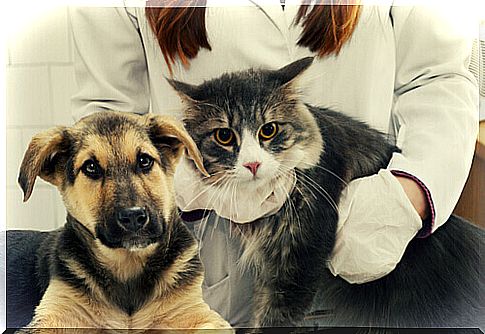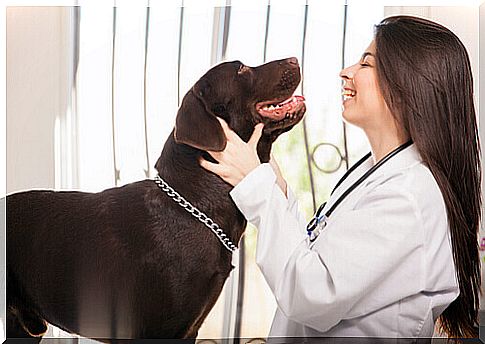Animal Psychologists: Let’s Find Out Who They Are And What They Do

Even today, when we talk about animal psychologists, many people turn up their mouths. On the one hand, there is a belief that taking your dog or cat to the psychologist is a simple gesture of ostentation. On the other hand, being animals, they are often considered not very intelligent and, therefore, resorting to a psychologist would only be a waste of time. On the contrary, there are serious diseases that affect pets, such as depression , but also fears, anxiety, panic attacks. A series of problems that negatively affect their health. It is worth explaining the role of animal psychologists better: who they are, what they do and when they should be consulted.
The intervention and therapies of a psychologist for dogs or cats are essential to solve even serious problems. The work of these professionals is crucial to overcome attitudes and traumas that the bosses, alone, cannot solve in any way, simply because they do not have the tools to do it. And you know well that simple affection and understanding are often not enough.
Who are animal psychologists?

Animal psychology studies the behavior and behavior of animals, to determine the functioning and the reactions taking place at the mental level and to be able to intervene in an adequate way.
In particular cases, in the same way, it is also useful to even analyze and study the behavior of the members of the family hosting the animal. The goal is to recognize, identify and eradicate attitudes that cause psychological problems in the dog or cat.
In more general terms, animal psychology is scientifically known as Ethology.
What Do Animal Psychologists Do?
Each attitude of your pet can be associated with a specific pathology. Animal psychologists have invested part of their lives studying the body language of cats and dogs, to recognize any mental disorders, depression, anxiety or fears.
Even at the pharmaceutical level, years of research have produced, in laboratories, medicines suitable for the treatment of these problems. Although it may seem strange to many of you, schizophrenic diseases are also found in animals.
For this, the role of animal psychologists is important and should be addressed to them. Based on the type of behavior of the dog or cat, the psychologist will act in a specific way. In the most delicate cases it may even be useful to take the animal to a veterinary center. Here, following a precise pharmaceutical protocol, the most serious and profound disorders, on a psychological level, can be resolved.
The good news is that most animal mental illnesses can be overcome. What must be avoided is certainly superficiality. The ignorance of some can transform a simple passing problem into a disorder that, over time, risks becoming hardened and becoming chronic. Contacting a psychologist for dogs or cats means having the ability, and the intelligence, to recognize something that is wrong with our four-legged friend. Taking care of an animal also means this.
Psychological therapies for your pet
A sad dog, letting himself go or suffering from dangerous learned helplessness, can only be cured with the experience and training of an animal psychologist. You must also be ready for sacrifices. For example, agreeing to be separated from your cat or dog for a few days or weeks. We are talking about targeted therapies, the result of verified studies and which will certainly produce benefits. And, of course, if your pet gets better, you will get better too.
How to choose the best pet psychologist
The most common mistake many make is to confuse the animal psychologist with regular trainers or trainers. Attention: we are talking about professionals with a degree in Ethology and who deal, specifically, with mental pathologies and disorders.

If you need a psychologist for dogs or cats, but you don’t know any, our advice is the same as always. Contact your veterinarian. He will certainly be able to point you to a trusted professional to deal with a particular problem.
In order to understand the professional’s skills, from the very first times observe how he treats your pet. How does it address him, if your dog responds to his stimuli and therapies. If, for some reason, you feel that the relationship between psychologist and patient is not working, feel free to contact someone else. It is your right and, since it is the health of a living being, it is better not to persevere if the treatments do not produce results.
The most important thing is to keep in mind that we are talking about Ethology, which is a real and verified science, very serious. It is your obligation and responsibility to also be concerned about the mental health of the dog or cat you share your life with.
Never underestimate the signs that can result from strange and incomprehensible behavior. Dare to turn to animal psychologists. Every day they work to make the lives of cats and dogs better. Just like psychologists for people.









